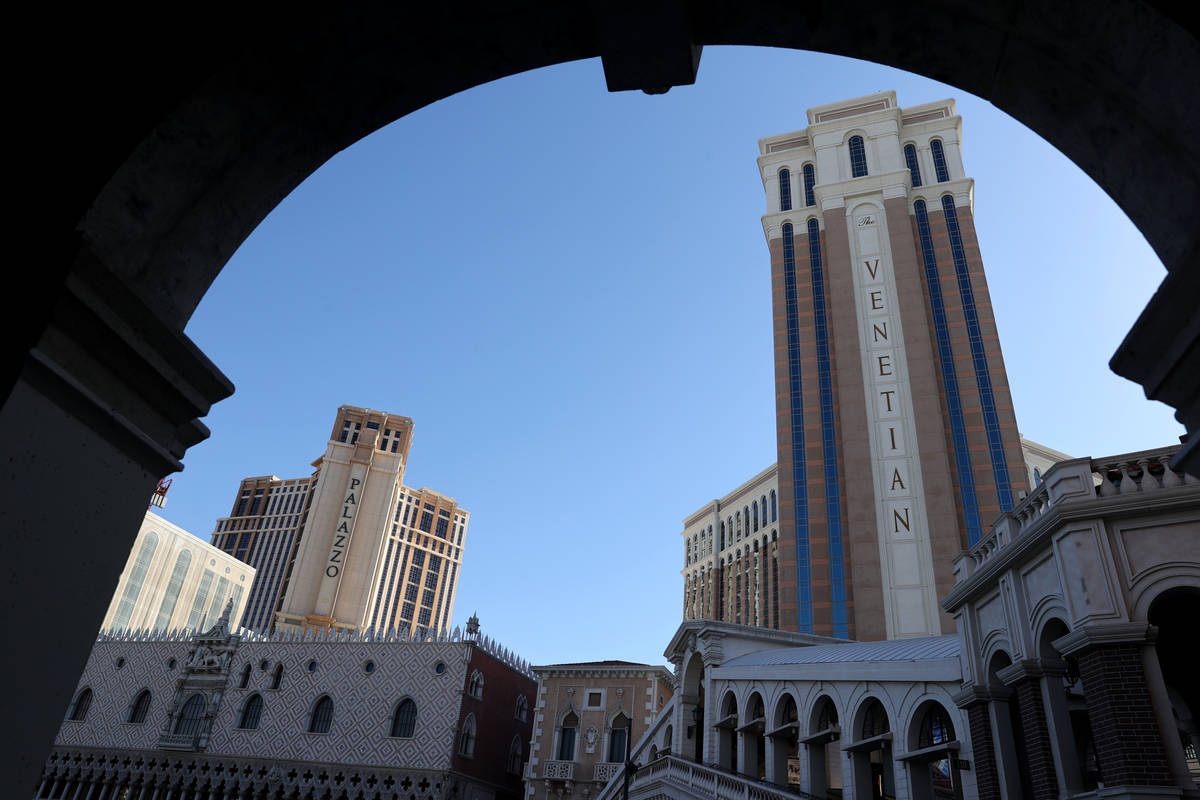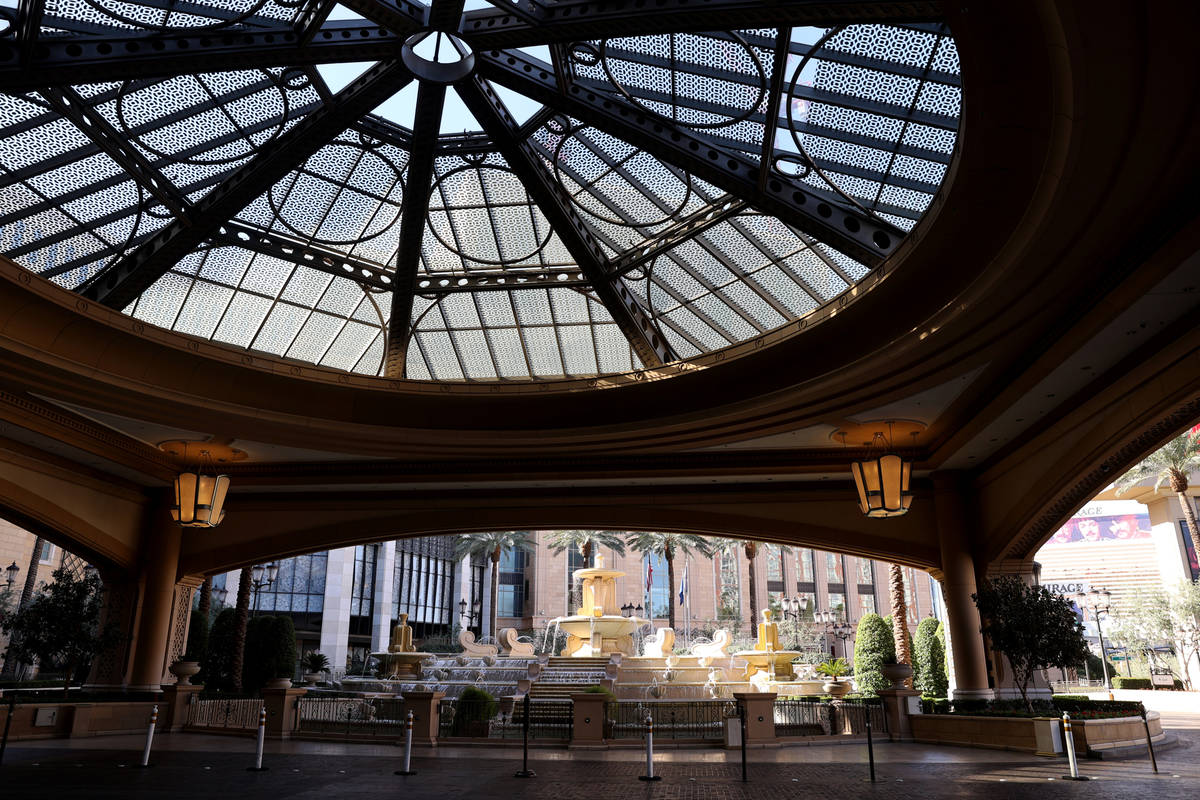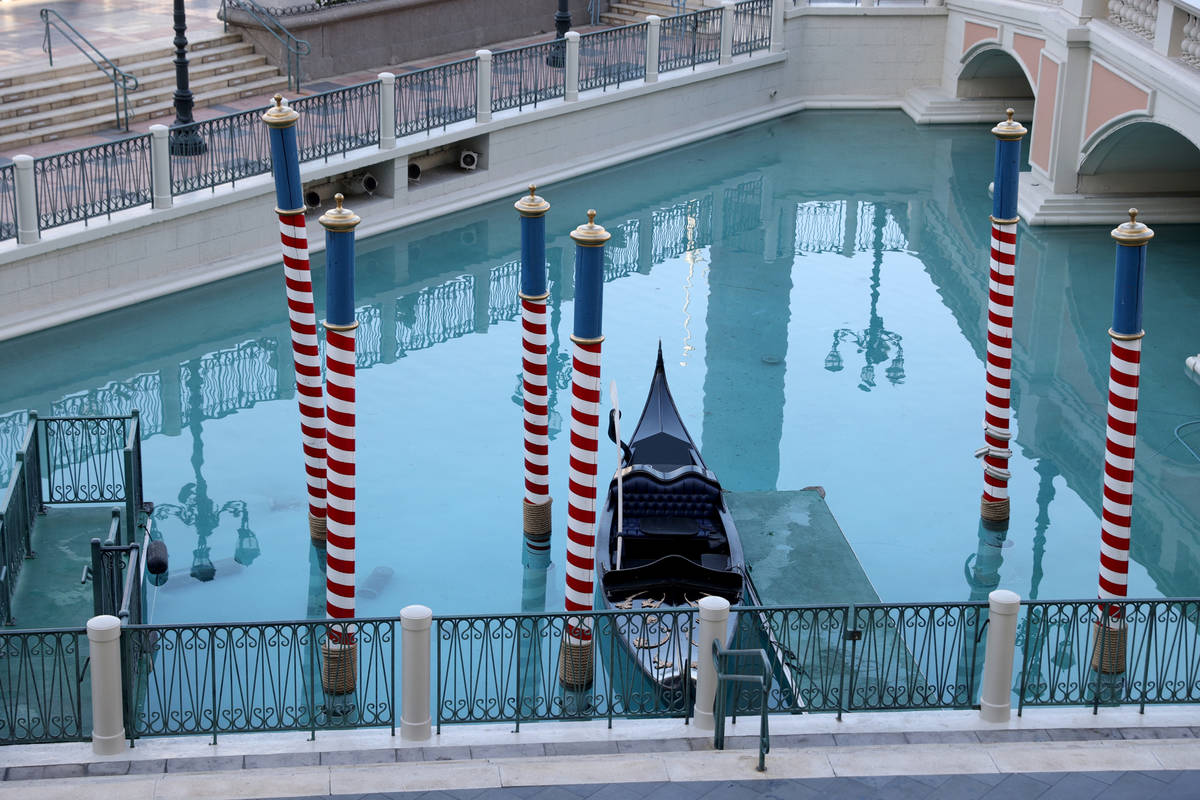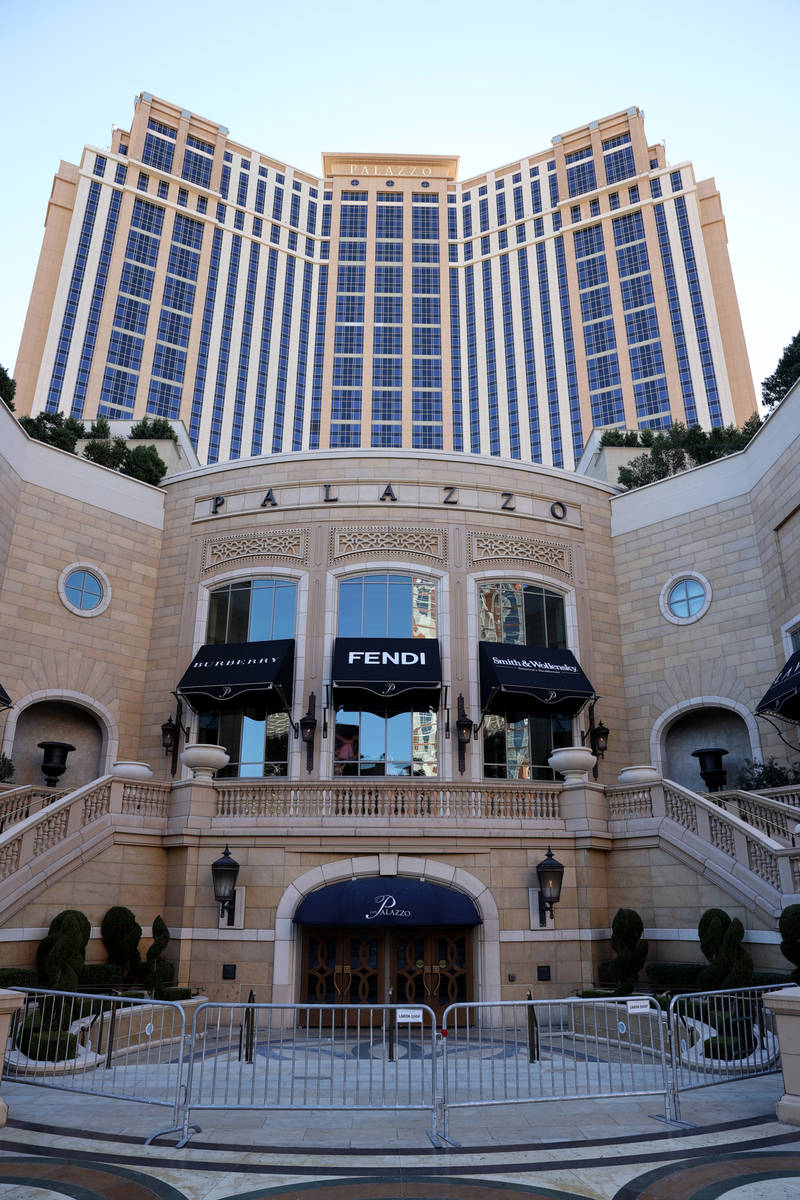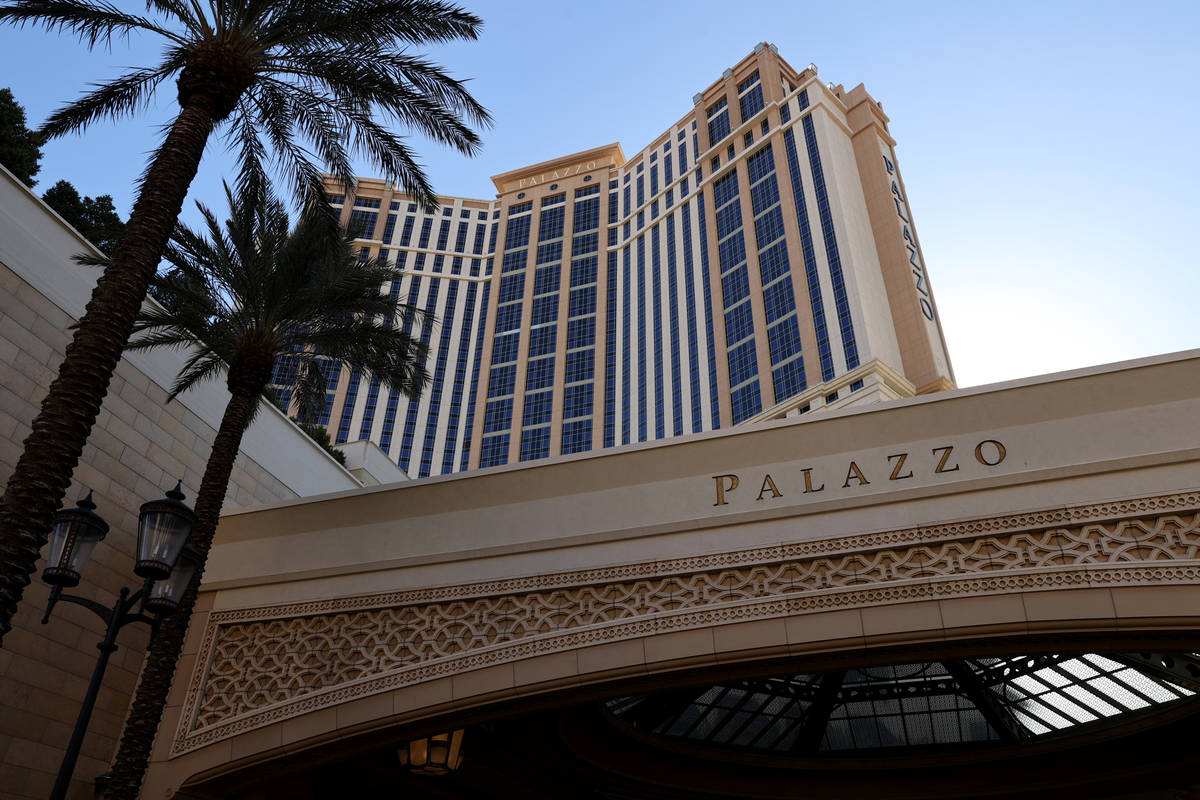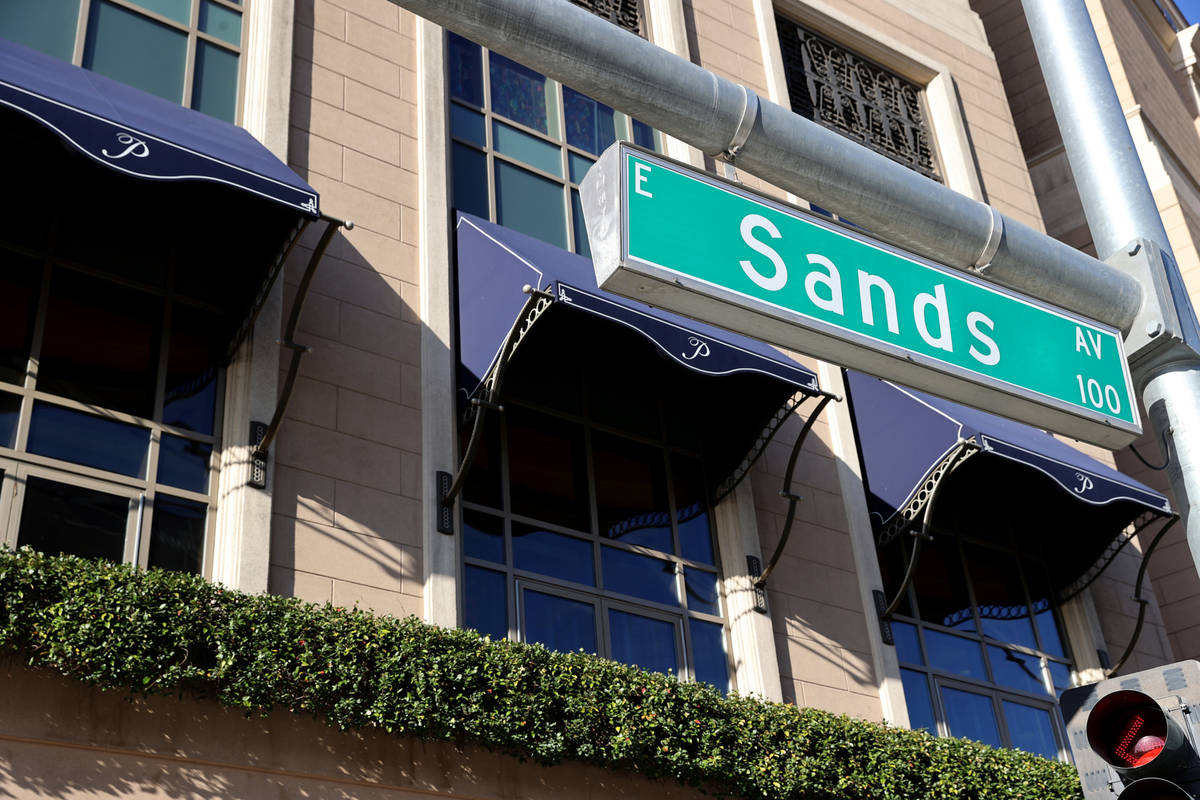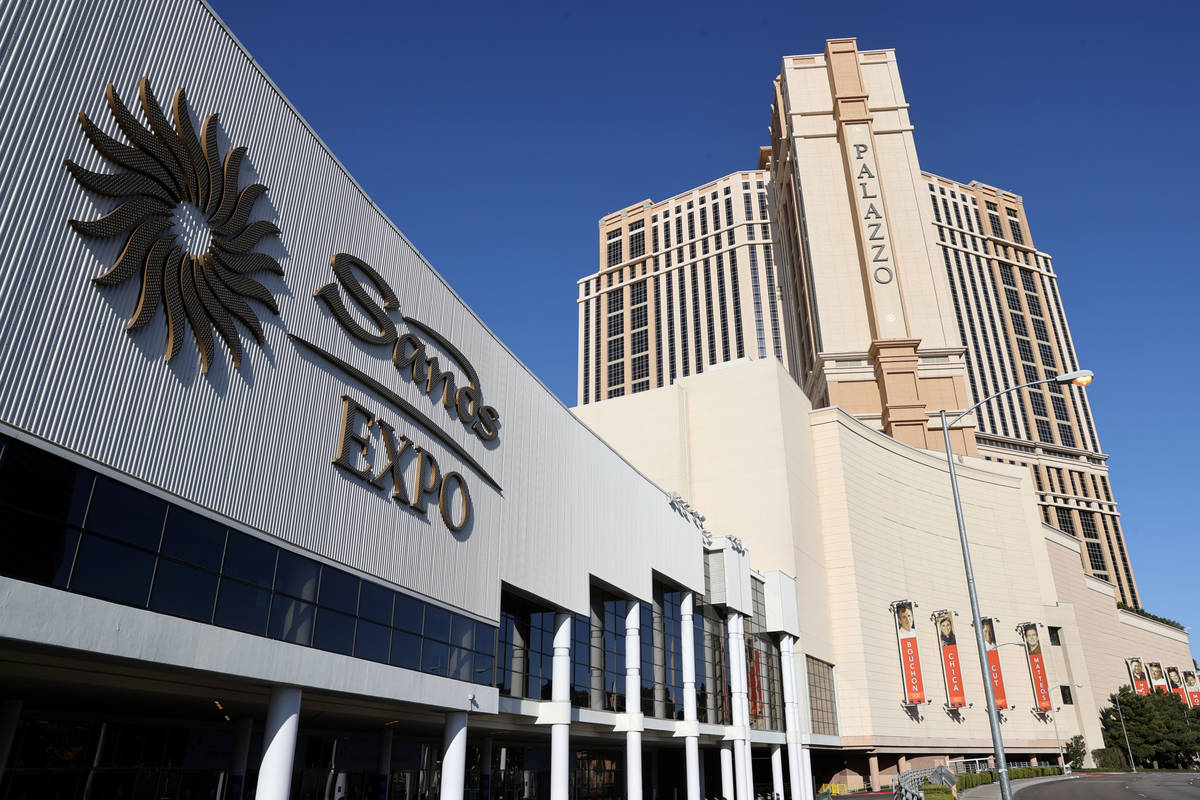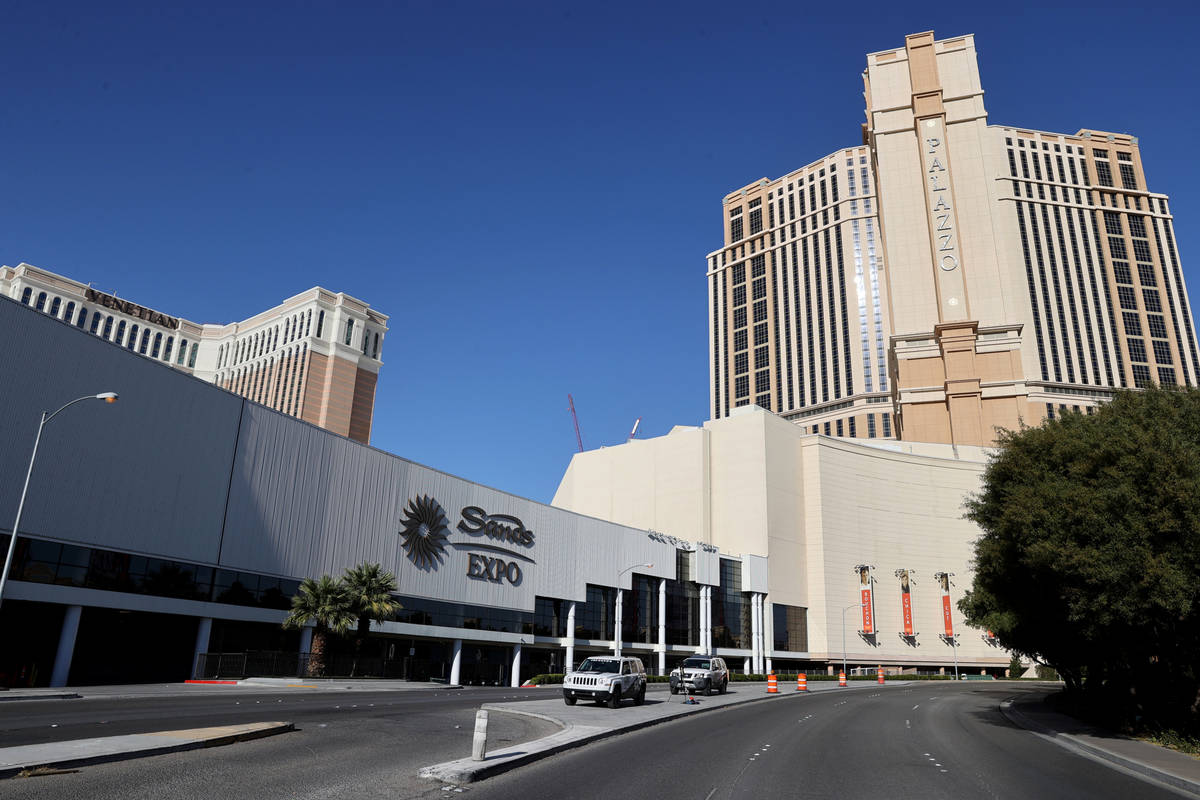Sands’ $6.25B sale of Strip assets a good sign for Las Vegas, experts say
The sale of Las Vegas Sands Corp.’s Strip assets is a positive sign for its namesake city, industry experts say.
The company announced Wednesday that it is selling its Las Vegas properties to Apollo Global Management Inc. and Vici Properties Inc. for $6.25 billion — a price tag large enough to show there’s still value in the Las Vegas market.
“This is the end of an era, and the city has been shaped in many positive ways by the Sands corporation over the years,” UNLV assistant professor of hospitality Amanda Belarmino said. “However, it shows a great deal of confidence in the future of Las Vegas and the future of travel for this transaction to take place right now.”
Optimism for the Strip’s future
Affiliates of Vici and Apollo are set to acquire subsidiaries that will hold the real estate and operations of Sands’ Venetian and Palazzo resorts and the Sands Expo and Convention Center. Apollo is set to take over operations for $2.25 billion and Vici is spending $4 billion to acquire the real estate and essentially act as landlord.
Experts say the exit makes sense for Sands. Profits from its Las Vegas properties were substantial but paled in comparison to revenues coming in from Asia. The Strip assets made about $1.8 billion in revenue in 2019, compared with $3.1 billion in Singapore and $13.7 billion in Macao.
“The growth (in the Asian market) was astounding, whereas Vegas is more of a mature market that is also super competitive,” said Nehme E. Abouzeid, president of consulting firm LaunchVegas and a former Sands executive. “We always knew (Las Vegas) was a small piece of the pie for Sands.”
While the Las Vegas assets may no longer make sense in Sands’ portfolio, experts say the market could work well for other players who believe Las Vegas will bounce back.
“It’s like when a player gets traded on a hockey or football team,” said David Schwartz, professor and associate vice provost for faculty affairs at UNLV. “One group didn’t want you, but another team wanted you enough to give something up.”
For Vici and Apollo, that “something” was more than $6 billion.
“They clearly know that Las Vegas is going to see a resurgence, and they clearly intend to be a part of it,” said Alan Feldman, a distinguished fellow at UNLV’s International Gaming Institute.
Macquarie analyst Chad Beynon believes the transaction highlights the value of the Las Vegas market and confirms views that its recovery will be “faster than feared,” according to a Wednesday note.
That bodes well for other Las Vegas operators looking to make a sale on the Strip like Caesars Entertainment Inc., which has plans to sell at least one Strip property by the end of next year, and Penn National Gaming, which has been looking to find a buyer for the Tropicana.
“There are buyers today (especially private equity), willing to pay a full valuation for exposure to the (Las Vegas) Strip,” J.P. Morgan analyst Daniel Politzer said in a Wednesday note, adding that the market could start to recover as soon as the second half of this year.
Josh Swissman, founding partner of Las Vegas gaming and hospitality consulting firm The Strategy Organization, said the sale also signals confidence in the hospitality and convention industries at large.
“There should be optimism and an understanding that the future is much brighter than the current environment today around gaming, international gaming and group business,” he said. “This is a huge vote of confidence that the convention industry is coming back to Las Vegas.”
‘Clear positive’ for Vici, Apollo
Jefferies analyst David Katz said the purchase was “a clear positive” for Vici, a Caesars-affiliated real estate investment trust. While expensive, the deal represents a 17 percent growth to the company’s rent income in 2021.
As for Apollo, the purchase gives it control of the largest asset on the Strip with more than 7,000 hotel rooms, 225,000 square feet of casino space and 2.3 million square feet of convention space.
“The Venetian assets really are best in class, so I get why (Vici and Apollo) were interested in — and consummated — this transaction,” Swissman said.
This is Apollo’s second go as a Las Vegas Strip operator. The company purchased Harrah’s Entertainment — now Caesars — through a joint venue with TPG Capital in 2008. It was unfortunate timing; the country fell into a deep recession shortly after the deal closed, and Caesars’ largest subsidiary filed for bankruptcy in 2015.
Swissman said Apollo’s past doesn’t concern him with its future endeavors on the Strip.
“I wouldn’t hold what happened with Caesars against them because they were operating in a harsh environment,” he said. But “this is a big undertaking. … Anyone is going to have their work cut out for them in terms of managing” Sands’ Las Vegas assets.
Brendan Bussmann, a partner at Global Market Advisors and former Sands employee, said the new operators will need to emphasize the properties’ meeting and convention business to be successful.
“Apollo needs to solidify this portion of the business with existing leadership to keep one of the largest private convention centers continuing to operate at the level it has as business returns to Vegas in the coming years,” he said. “If not executed properly, it could be a problem.”
Sands’ strategy
Stifel analyst Steven Wieczynski said Sands has “a ton of flexibility” on how to spend the proceeds from the impending sale.
A dividend could “maybe” be on the horizon for investors sooner rather than later, Wieczynski said. But he believes Sands is more interested in domestic opportunities, like the potential new gaming markets in Texas or New York. More investments in Asia are also on the table.
“If Macau (or) Beijing are looking for additional nongaming commitments, (Sands) with their pristine balance sheet, will be well armed and prepared to spend,” he said in a Wednesday note.
Investment in an online sports betting provider could be another avenue but poses challenges because Sands is entering the space late in the game.
“What would scare us is that they overpay for an online platform given the massive increase in valuation ranges for such companies,” Wieczynski said. “At the same time, given their lack of a U.S. presence now, we believe they would have to get super aggressive with promotions/marketing/advertising to stay competitive.”
Abouzeid added that at this point, Sands’ investment options in the national online sports betting space are limited.
“There aren’t too many dance partners left,” he said. “There are operators and casinos and sportsbooks and media companies that have been partnering for the last two years. … Globally, they could still get involved.”
Sands shares closed up 1.3 percent Wednesday to $65.82 on the New York Stock Exchange. Apollo shares closed up 1 percent to $50.41, and Vici shares closed up 2.5 percent to $29.19 on the New York Stock Exchange.
The Review-Journal is owned by the family of Sheldon Adelson, the late CEO and chairman of Las Vegas Sands Corp.
Contact Bailey Schulz at bschulz@reviewjournal.com. Follow @bailey_schulz on Twitter.



